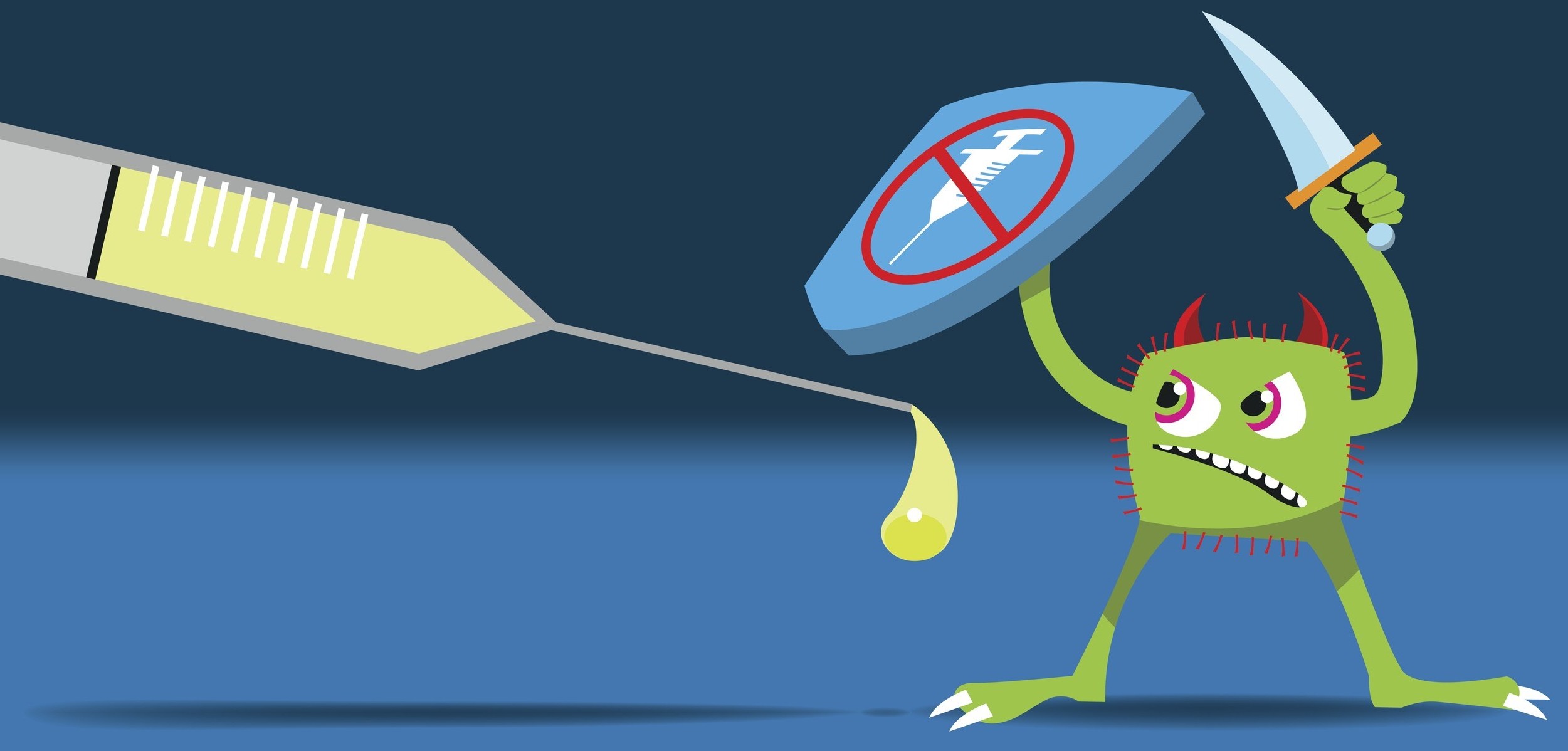Argentina is recognized throughout the world for being a meat producing and exporting country, and at the same time for taking care of aspects that make up the quality and safety of an emblematic product for the country.
However, the sustainability of agri-food systems and food security find a growing global threat in antimicrobial resistance (AMR), which hampers human and animal health. The term “antimicrobials” is used to refer to drugs used to prevent and treat parasitic, bacterial, viral, and fungal infections.
It is estimated that around 700,000 people die each year worldwide from diseases caused by resistant germs (UK Government O’Neill Commission). It is, in effect, one of the main threats to health and it is estimated that, if the necessary measures are not taken, by the year 2050 it would reach 10 million deaths per year.
In order to tackle AMR, since 2010 there has been a coordinated effort between the World Organization for Animal Health (OIE), the Pan American Health Organization (PAHO) and the Food and Agriculture Organization of the United Nations (FAO), to address the issue under the One Health approach. This approach recognizes that animal health, human health and the health of the planet must be considered in an integral way in order to achieve sustainable production.
At regional level, FAO, OIE, and PAHO are implementing , in seven countries, including Argentina along with Brazil, Chile, Colombia, Paraguay, Peru, and Uruguay the Project Working Together to Fight Antimicrobial Resistance. This project is in line with the global initiative focused on strengthening the capacity of the veterinary and health services to reduce the impact of antimicrobial resistance.
The project (2020-2023) is funded by the European Union, and contemplates a total of 12.6 million euros, to support the implementation of the national action plans against antimicrobial resistance of participating countries.
An initial diagnosis of each country was carried out at the beginning of the project, to better understand which were the main areas to be improved. Then, each government presented an action plan to reduce the use of antimicrobials.
“The key lies in the veterinary and agronomic services, in reaching the entire chain, because what the project wants is to strengthen the capacities of the countries for a prudent use of antimicrobials in human, animal, plant and health environmental”, assured Luis Barcos, regional representative of the World Organization for Animal Health (OIE) for the Americas.
Argentina has a been working strongly in the fight against antimicrobial resistance and has also the advantage of counting with the National Institute of Microbiology “Dr. Carlos G. Malbrán”, which is a reference for all of America. This laboratory promotes the scientific culture of the country and is established as a center for the production of serums, vaccines and biological products for the diagnosis of antimicrobial resistance.
Even the Malbrán trained the Argentine veterinary laboratories long before this project arose, for which the work with the Ministry of Health was crucial, as they brought together all the parties: Academia, SENASA, INTA, Environmental agencies, the Argentine Society of Infectiology, the Argentine Society of Laboratories, among others.
Also, the SENASA team has been trained to improve the quality of data collected on the use of antimicrobials in animals, and together with INTA incorporated molecular biology techniques into the National Program for the Surveillance of AMR in consumption animals. Through the collection of stool samples in refrigerators, they aim to find bacteria that indicate the development of resistance to certain antibiotics.
“All this scientific and technical knowledge was very important for the conversations that turned into a national plan for the Control of Antimicrobial Resistance in Argentina, which has already been signed with joint resolutions of the Ministry of Health and Agriculture. It is worth mentioning that this national plan went beyond governments, it was a country project”, said Barcos.
“The proper management of antibiotics is a positive factor that benefits all parts of the production system. The ultimate goal is to reduce the cases of antimicrobial resistance in humans, which is achieved with a careful and responsible use of drugs”, Barcos highlighted.
“Working together not only with OIE and PAHO but also with SENASA, INTA and the country’s universities, is essential for strengthening the institutional capacities of the national livestock sector”, declared Tito Efraín Diaz, Veterinary Doctor and Acting Representative of the FAO in Argentina and Uruguay.
“Consumers are becoming more demanding. They want to know where the meat products come from, what the production systems are like, whether or not they are friendly to the environment, what is the animal health and welfare status, what is the quality and the product safety, how they are marketed, how they are transported, how they are processed, among other things”, added Díaz.
Due to all the above, Díaz confirmed that the antimicrobial resistance project carried out jointly by FAO, OIE and PAHO in Argentina and other countries in the region, together with other FAO cooperation projects in sustainable livestock, “will contribute to improve the sustainability of production, the safety of livestock products, the health of the environment and the health of producers and consumers. Likewise, it will have a very important impact on the meat trade of the southern cone countries worldwide”.
The OIE and FAO representatives concluded that they will continue to strengthen the strategic alliance between their organizations in the country. Through this partnership, they look forward to keeping on training and raising aware within the different actors in the meat chain about this important matter, in order to improve the health status, quality and safety of the meat products and strengthen sustainable livestock development in Argentina.
The World Antimicrobial Awareness Week (WAAW) is celebrated from 18-24 November every year. The 2021 theme, Spread Awareness, Stop Resistance. During this week, it becomes of utmost importance to raise global awareness about antimicrobial resistance, encouraging its prudent use in human, animal, and plant health.
Click here to access all the digital resources of the campaign (available in English, Spanish and Portuguese) https://trello.com/b/WRW9zZ20/waaw-2021
